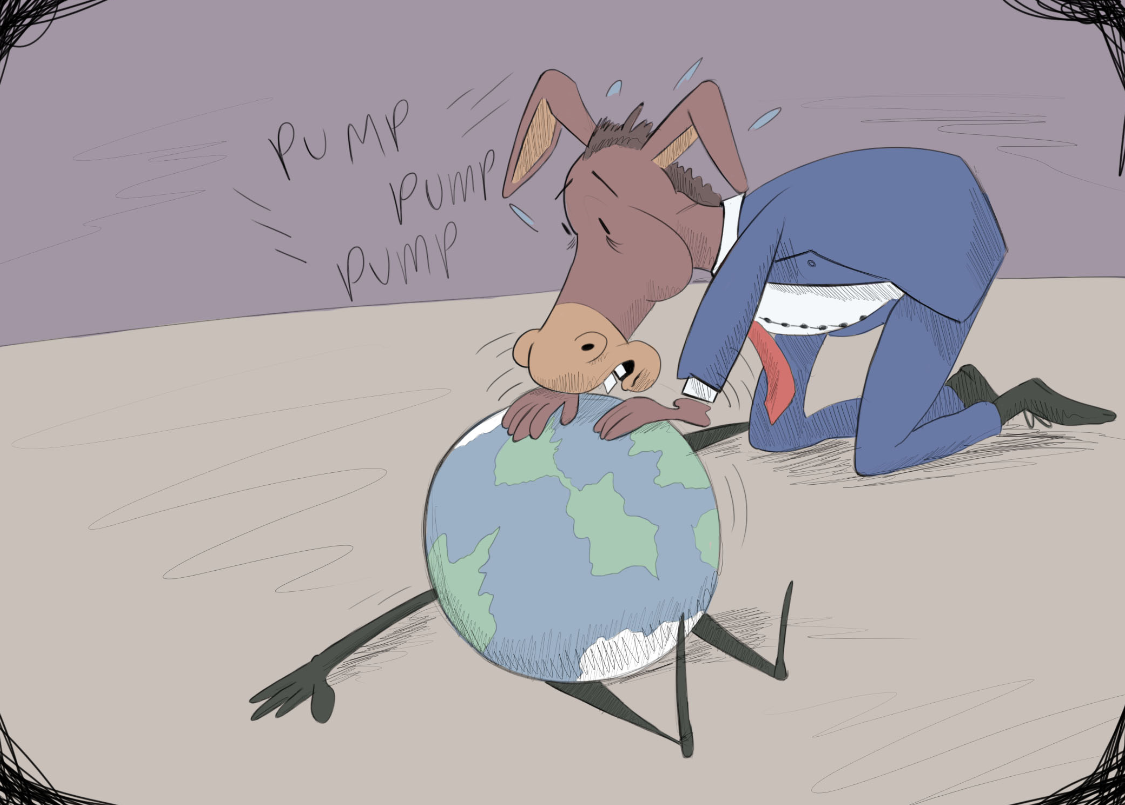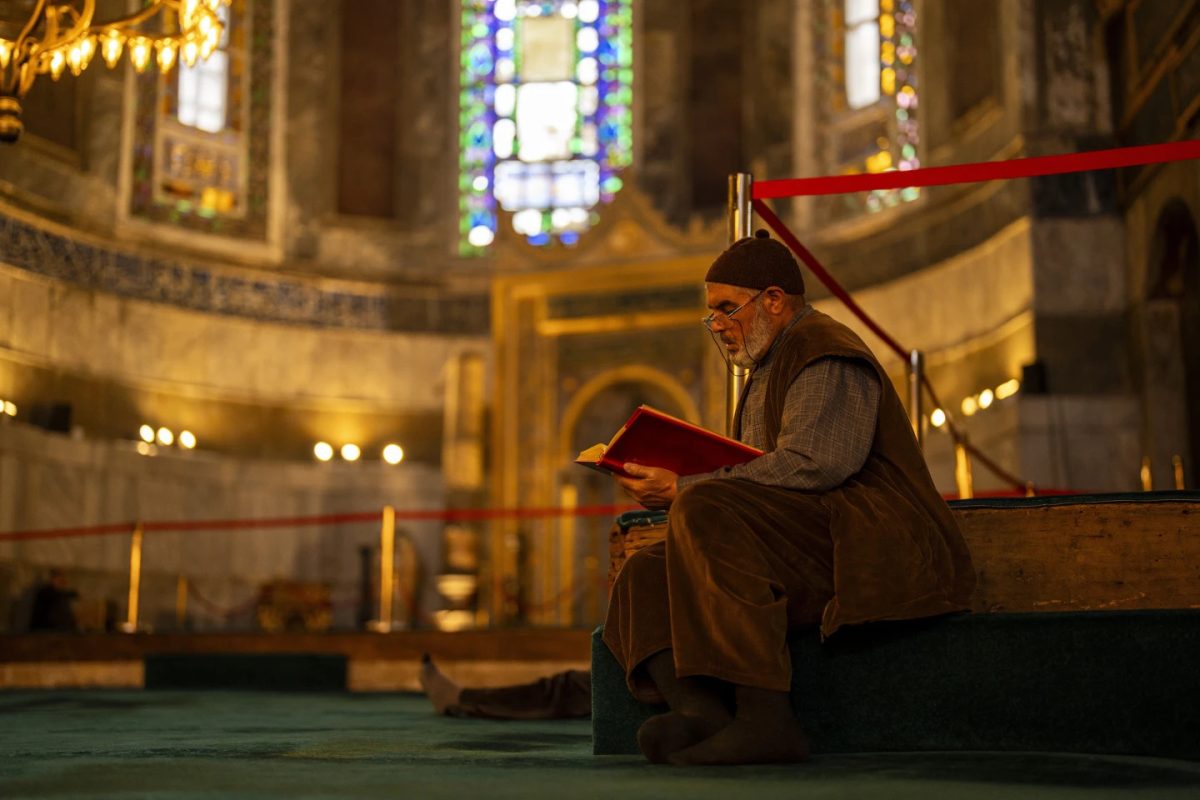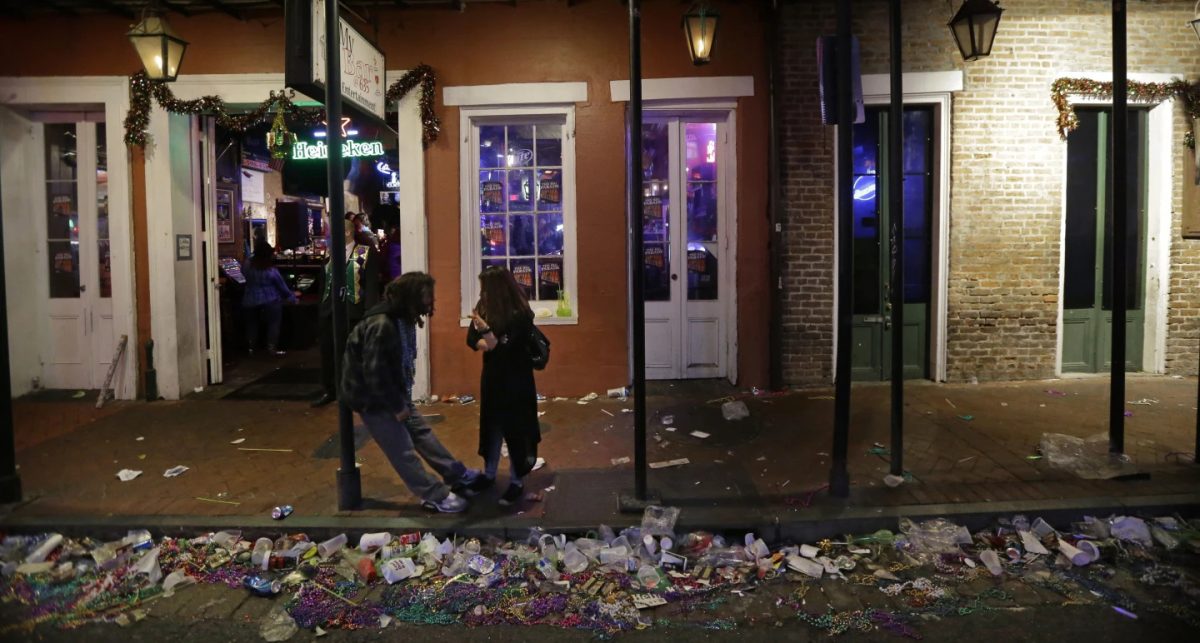The Green New Deal, a proposed economic stimulus program aimed at addressing both economic inequality and climate change, is making waves in the political realm. The plan calls for unprecedented measures to move the country toward renewable energy and reduced poverty.
By no means am I a student of economics or public policy, but the GND doesn’t require a doctorate in economics or years of public policy experience to recognize the necessity of a proposal as drastic as this. We should all be educated on the issues of climate change and poverty, especially before we form an opinion on the proposed Green New Deal.
The Green New Deal is the long-overdue hot topic that’ll be a major point of debate in the 2020 presidential election. It’s an ambitious set of goals that includes replacing all fossil-fuel consumption with clean energy within 10 years. This, according to the GND, will eliminate poverty and re-invigorate the American economy by implementing a job guarantee program.
It calls for a drastic overhaul of our infrastructure and job market. The basic logic is that we can decarbonize by investing and creating jobs in green technologies. The proposal also mentions implementing universal healthcare and voting rights. It’s incredibly idealistic and visionarily utopian, as well. U.S. Rep. Alexandria Ocasio-Cortez’s, D-N.Y., draft, which can be found online, is sprinkled with words like “justice” and “equality.”
Her ideas may even seem paradoxical, as conservatives have argued. Some might ask, “How is eliminating every job in an entire industry, increasing the cost of energy and taxing more Americans, just?” Progressives, on the other hand, might say, “Well, our planet is dying and we aren’t doing enough about it, so we have to take drastic measures.” Conservatives might respond, “Well, China and Russia aren’t going to stop burning fossil fuels and they’ll capitalize on that market, so why should we make the sacrifice?” This hypothetical conversation exemplifies only a few of the debates regarding the proposal.
Climate change isn’t a new phenomena. Countless reports have been published detailing the damage we’ve done to the environment and spelling out an increasingly bleaker prognosis for the planet. More people are now employed in green industries than fossil fuels, but we haven’t done enough relative to the number of problems we’ve created — we’re running out of time.
Poverty isn’t new, either. The earned-income tax credit program is regarded by many as the most effective factor in reducing poverty levels, but a full-time minimum wage job won’t always guarantee economic security for a family, and millions of Americans still live in poverty. America is one of the wealthiest and supposedly just countries in the world. This contrast can’t be reconciled, nor should it sit well with anyone.
Ocasio-Cortez’s goals aren’t entirely new. New York Times columnist Thomas L. Friedman first discussed a Green New Deal in an article in 2007. However, Ocasio-Cortez’s proposal is making waves in the political landscape now because of its boldness and the attention it demanded. Every prospective Democratic candidate will be asked if he or she supports the Green New Deal. Critics consider the goals unrealistic and inherently dooming socialist ideas, while proponents consider them revolutionary, emboldening and imperative.
Whatever you may think of Ocasio-Cortez or her Green New Deal, we have to have this discussion. If America wants to be a world leader, a city upon a hill and an example for the rest of the world, then we have to embrace bold ideas and brainstorm solutions that address our issues head-on. The Green New Deal is that challenge. Climate change and poverty are only two of many problems Americans disagree on. The sooner we address and find solutions to those problems, the better.
It’s important to remember the proposal doesn’t specify details about exactly how to achieve the goals it outlines, and few people have the expertise to offer those specifics. Still, it’s vital we start somewhere. The Green New Deal isn’t a detailed policy roadmap. It’s a plea that we make the effort to do something. Don’t write it off because it’s seemingly unrealistic. Embrace it because it demands we think, talk and act on problems that America is capable of solving.
James Smith is a 22-year-old mass communication senior from Grand Coteau, Louisiana.
Opinion: Green New Deal possible solution, requires serious consideration
By James Smith
February 7, 2019
cartoon







